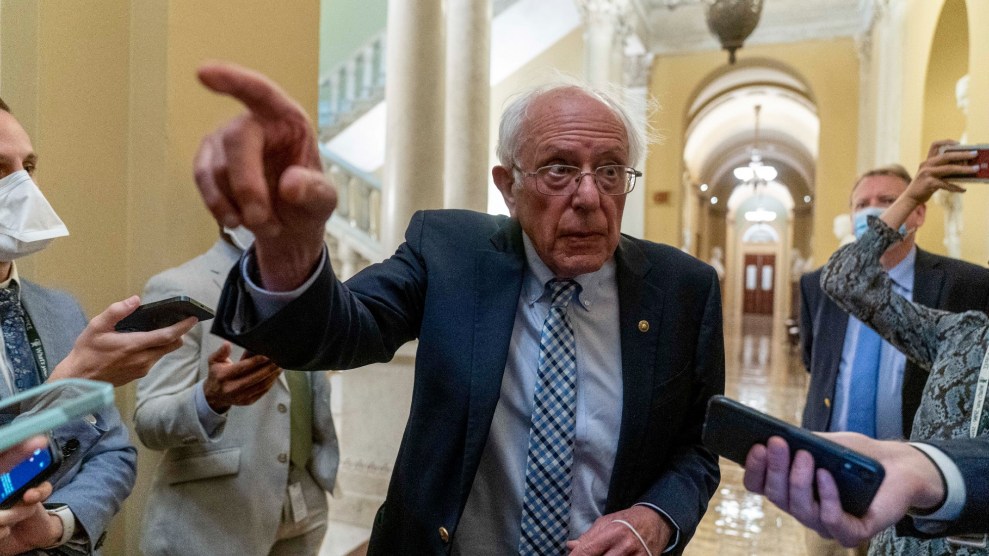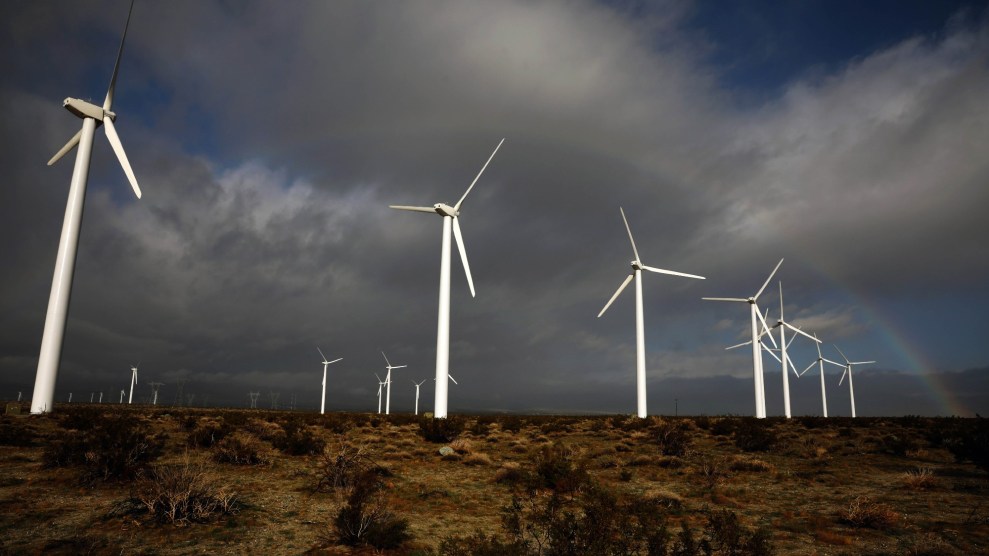
Andrew Harnik/AP
For months, Democrats have been trying to pass a huge legislative package to fund infrastructure—the physical kind, like roads, and the human kind, like child care and climate change mitigation. After many iterations, these goals are now stuck in Congress in the form of two bills: a bipartisan $1.2 trillion physical infrastructure bill, and a $3.5 trillion social spending package.
On Sunday, Sen. Bernie Sanders, one of the progressives leading the infrastructure push, said that this $3.5 trillion price tag will likely have to be lowered to get the package passed.
“The $3.5 trillion should be a minimum, but I accept that there’s gonna have to be a give and take,” he said on ABC’s This Week.
Sen. Bernie Sanders tells @jonkarl that the $3.5 trillion budget resolution price tag will likely be lowered.
“The $3.5 trillion should be a minimum, but I accept that there's gonna have to be give and take.” https://t.co/5MGcXtm7a4 pic.twitter.com/efP8oRyu7m
— This Week (@ThisWeekABC) October 3, 2021
While he acknowledged that a price drop may be unavoidable, Sanders also made clear that $2 trillion, a number floated by President Biden, was too low. This spring, Sanders had proposed that the bill—which is the foundation for many of Biden’s domestic policy priorities and includes things like free community college, and expansion of Medicare to include dental, hearing, and vision benefits for seniors—should have a $6 trillion price tag. On Sunday, he made clear that he still thought that larger amount was “probably too little.”
His comments come the day after Sen. Kyrsten Sinema (D-Az.) a moderate Democrat, slammed the efforts of progressive House democrats to hold up passage of the bipartisan infrastructure deal, by insisting that it stay linked to the $3.5 trillion package. House Speaker Nancy Pelosi had hoped to hold a House vote on the deal late last week, but the 95-member Congressional Progressive Caucus made clear that more than half of its members would tank the bipartisan bill if it is kept separate. On Saturday, Sinema accused them of holding the smaller bill hostage. From her home state of Arizona, where she travelled this weekend to attend a fundraising retreat for her political action committee, she called the move “inexcusable” and “deeply disappointing.”
In acknowledging that the $3.5 trillion price tag would likely have to come down, Sanders also pushed back on Sinema’s criticism of his fellow democrats who are fighting to pass both bills by reiterating the urgency of the priorities in the spending bill.
“Elderly people in this country can not chew their food because they don’t have teeth in their mouth,” he said. “The scientists are telling us that if we do not act boldly in terms of cutting carbon emissions then the planet we’re leaving our kids and grandchildren will be increasingly uninhabitable.”
“Both of these these bills are going forward in tandem,” he said. “We’ve got to pass them both.”
















